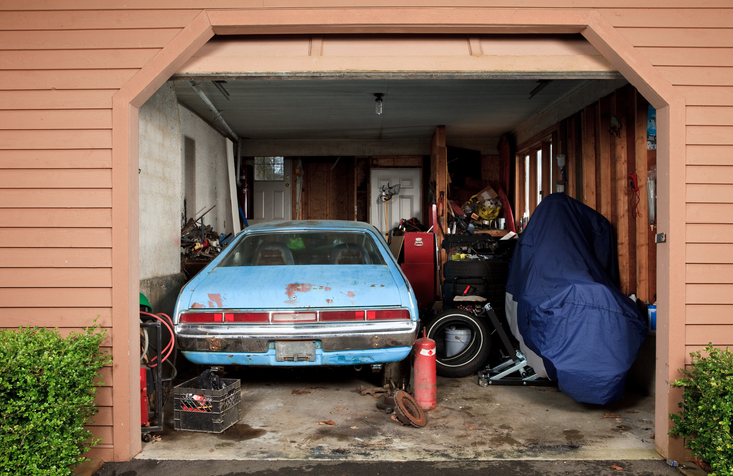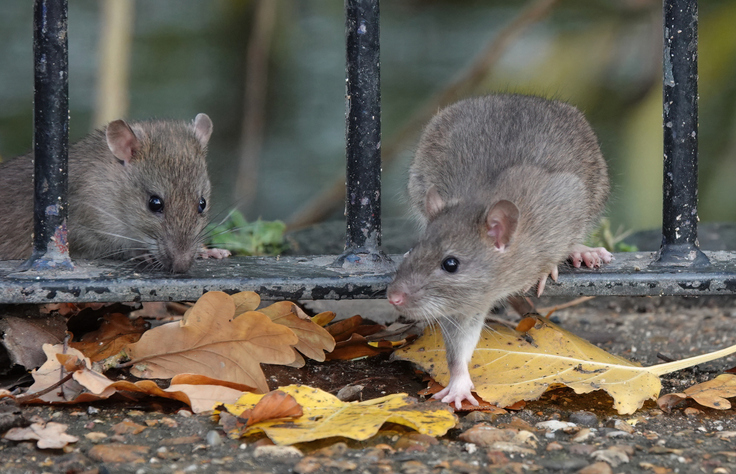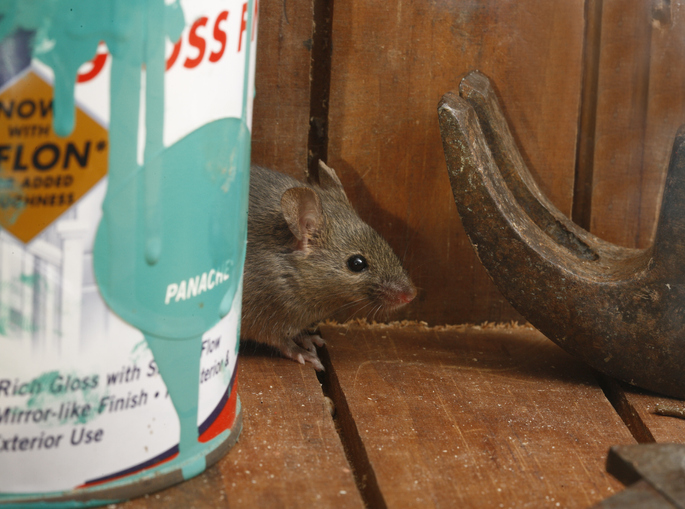As unusual as it may sound, the issue of mice infestations in cars is far from uncommon. A quiet, rarely disturbed place like a car parked in a garage or a rarely used vehicle can become an attractive home for these pesky rodents. Their tiny size allows them to sneak into the hidden crevices of our vehicles, creating a problem that’s not just inconvenient, but potentially expensive and hazardous as well.

The potential damage mice can cause to vehicles should not be underestimated. They have a propensity for chewing through virtually anything in sight – from plastic and rubber hoses to electrical wiring. This destruction can lead to serious problems such as malfunctions in your car’s electrical system, engine issues, and even brake failures. Repairing such damage can prove costly, significantly exceeding the annoyance of merely discovering their presence in your car.
Moreover, the risks associated with having mice in your car extend beyond mere financial considerations. Mice are carriers of various diseases that can pose serious health risks to humans. The threat increases if the infestation goes unnoticed, and the vehicle’s ventilation system spreads harmful bacteria or viruses. Furthermore, the presence of mice can also lead to severe allergies for some individuals.
Thus, understanding how to detect and get rid of mice in cars is essential knowledge for every car owner, ensuring not only the longevity of the vehicle but also the health and safety of its occupants. The following sections will provide a comprehensive guide to dealing with this pervasive problem.
Recognizing a Mice Infestation
Identifying a mice infestation early can prevent extensive damage and expensive repairs. These sneaky creatures can be challenging to spot, so it’s essential to recognize the signs of their presence. Here’s what to look out for:
Presence of Droppings and Nesting Materials
One of the earliest and most common signs of a mice infestation is finding small, dark droppings in your vehicle. These can often be found in hidden spaces like the glove compartment, under seats, or around the engine area. Besides droppings, look for shredded paper or fabric, which mice use to nest.
Unusual Noises
The presence of mice may also be revealed by strange noises emanating from your vehicle. Listen for soft squeaks, rustling, or scratching sounds, particularly when the surroundings are quiet. These noises could indicate mice moving about or gnawing on parts of your car.
Distinctive Odors
An unmistakable sign of a mouse infestation is a peculiar smell. Mice have a unique musky scent that becomes noticeable when they’ve made a home in your vehicle. Moreover, the smell of their urine and feces can permeate your car, resulting in a persistent and unpleasant odor.
Changes in Vehicle Performance
Mice can cause physical damage that affects your car’s performance. If your vehicle’s wiring gets chewed through, you may notice issues with the electronics, such as flickering lights or a malfunctioning radio. Severe damage could lead to problems like engine malfunctions or brake failures.
Recognizing these signs is crucial in addressing a mice infestation promptly. The upcoming sections will delve into understanding the factors that contribute to infestations and the methods to effectively eradicate them. Stay tuned to protect your vehicle and ensure a rodent-free environment.
Understanding Factors Contributing to Mice Infestation
Several factors can increase the likelihood of a mice infestation in your car. Understanding these contributing factors can provide useful insights into preventative measures.
Car Type and Condition
The type and condition of your car can influence the likelihood of a mouse infestation. Older cars or vehicles in poor condition with gaps and crevices can provide easy access for these rodents. Moreover, cars with a lot of interior padding, upholstery, or insulation can offer attractive nesting material for mice.
Weather and Seasonal Changes
Weather and seasonal changes can also impact the likelihood of a mouse infestation in cars. In colder months, mice often seek shelter in warm places, and a parked car can provide an ideal refuge. During the fall, when mice are looking for winter nesting sites, cars can become prime targets, especially if they’re parked for extended periods.
Car Parking Location
The location where you park your car can significantly influence the risk of a mouse infestation. Cars parked in rural areas or near fields and woods are more prone to infestation as these environments are natural habitats for mice. Similarly, a car parked in a cluttered garage or near a food source can attract mice.
By understanding these factors, you can better strategize to deter mice and prevent infestations. The following sections will guide you through various techniques and methods to effectively eliminate mice from your car. Stay tuned for these essential tips to safeguard your vehicle.
Techniques and Methods to Get Rid of Mice
If you’ve detected signs of a mice infestation in your car, quick and decisive action is essential. Below are some effective techniques and methods to help you eliminate these unwanted guests.
Professional Pest Control
When dealing with a severe infestation, professional pest control services may be the most effective solution. They have the expertise and equipment to effectively eliminate mice from your car, preventing future infestations and ensuring that all health risks are mitigated.
Electronic Devices and Traps
Electronic devices that emit high-frequency sound waves can deter mice, making them an effective solution for your car. Similarly, traditional snap traps and live catch traps can be quite effective. Traps should ideally be placed near suspected entry points or where you’ve noticed signs of activity.
Natural Remedies and Household Items
Certain natural remedies can help deter mice. Peppermint oil, for instance, is a natural mouse deterrent. Soak cotton balls in the oil and place them around your car. Similarly, mothballs, clove oil, and cayenne pepper are also known to repel mice.
Specific Products for Mice Removal
Various commercially available products can aid in your battle against car-infesting mice. These include ultrasonic rodent repellers, rodenticides, and rodent deterrent sprays. Remember to use any chemical products carefully, following all safety instructions.
Dealing with a Deceased Mouse
If a mouse dies inside your car, it’s important to handle the situation carefully due to the potential diseases that the carcass may carry. Wearing gloves, remove the dead mouse and clean the area thoroughly with a disinfectant. Properly dispose of the gloves and the mouse in a sealed bag.
Proactive Measures Against Mice Infestations
Prevention is always better than cure, and this principle holds true for keeping your vehicle mouse-free. Below are some strategies to prevent future mice infestations.
Regular Car Maintenance and Care
Consistent car care can be an effective deterrent for mice. Regular cleaning of your vehicle, both inside and outside, eliminates the possibility of leftover food crumbs that could attract rodents. Similarly, promptly addressing car repairs, especially ones that could provide access points for mice, is crucial.
Use of Pet Deterrents
Interestingly, pet deterrents can serve as a useful tool to keep mice away. Products designed to keep pets from chewing on furniture, like bitter apple spray, can deter mice. Spraying it on the car’s wires can prevent rodents from gnawing and causing damage. However, these products should be used carefully and not sprayed near the car’s air intake to prevent the spread of its smell within the vehicle.
Regular Checks for Mice Infestation
Car owners should conduct regular checks for signs of a mouse infestation. Inspecting your vehicle every couple of weeks, especially if it is left unused for extended periods, is ideal. Pay close attention to signs such as droppings, chewed wires, or strange smells.
Health Implications
While it might seem that the primary concerns of having mice in your car are vehicle damage and the nuisance they cause, there are also significant health risks involved. Mice are carriers of various diseases that can be harmful to humans. The presence of mice feces, urine, or even a deceased mouse can pose a threat to the health of the driver and passengers.
Diseases such as Hantavirus Pulmonary Syndrome, Leptospirosis, and Salmonellosis can be transmitted directly or indirectly by rodents. Furthermore, allergies can be triggered or worsened by the presence of mice and their droppings. This fact reinforces the importance of promptly and effectively dealing with any mouse infestation in your car.
Conclusion
The threat of mice infestation in cars is a real and common issue faced by many car owners. The damage that mice can cause to your vehicle’s components, coupled with the significant health risks they pose, underscores the importance of addressing this problem promptly.
From recognizing early signs of infestation, understanding contributing factors, and exploring removal methods, to implementing preventive measures, this guide has provided a comprehensive overview of dealing with mice in cars. Regular checks, good car hygiene, and preventive measures can go a long way in keeping your vehicle rodent-free.
Remember, a mouse-free car isn’t just a matter of comfort and convenience. It’s a critical aspect of maintaining the health and safety of all passengers and ensuring the longevity of your vehicle. Don’t let these tiny creatures cause big problems. Stay vigilant, act promptly, and drive with peace of mind in your rodent-free vehicle.




